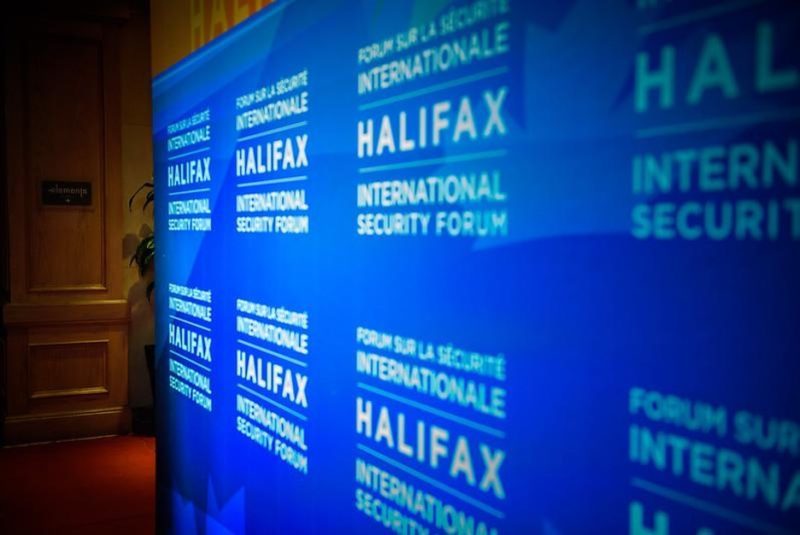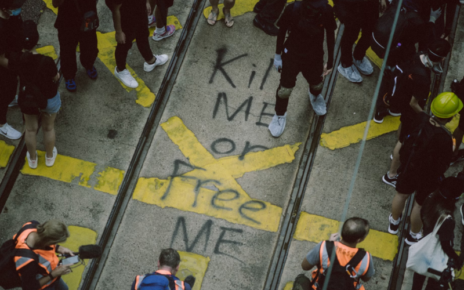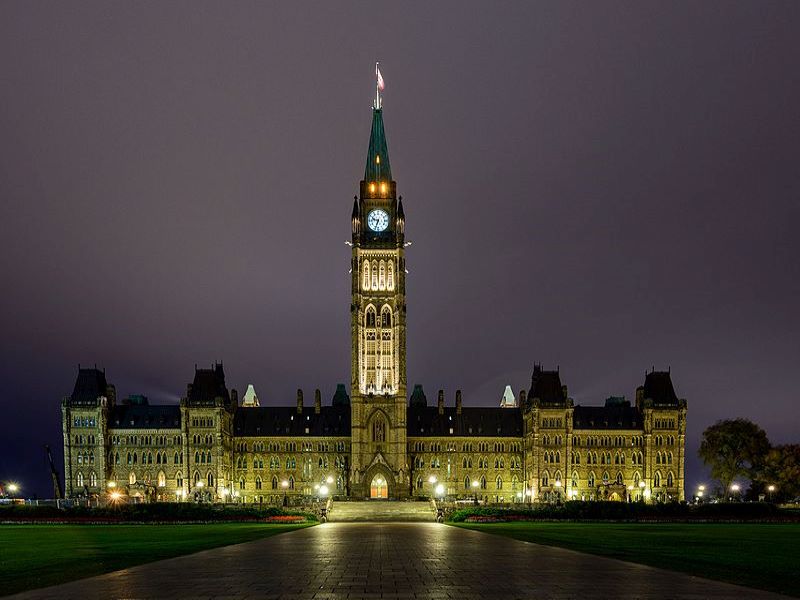From November 18 through 20, Halifax hosted its annual International Security Forum with defence ministers and other high-level security officials from around the world. The author of this article was able to attend many of the sessions. Discussion of the war in Ukraine was very ubiquitous.
The forum kicked off with a pre-recorded video message from Ukrainian President Volodymyr Zelenskyy. He was defiant in his speech and claimed that Russia is currently “looking for a short truce – a respite to regain strength.” He went on to say that “a truly real, long-lasting and honest peace can only be the result of the complete demolition of Russian aggression.” Zelenskyy then outlined Ukraine’s ‘Peace Formula’ (also presented at the G20) which comprises such items as nuclear safety, food and energy security, and the restoration of territorial integrity.
Zelenskyy’s address was a fitting beginning to the conference, as most of the presentations and plenary sessions, regardless of the topic, included a discussion of the war in Ukraine. Without exception, conference attendees strongly supported the Ukranians; there was no discussion of pressing Ukraine to begin negotiations with Russia. The tone was set when Forum President Peter Van Praagh told the audience in his introductory remarks that had Ukraine given in, we would now have[JMJD1] “a much-weakened Europe, a divided NATO, a humbled America: all confronting an empowered Russia, backed by a smiling Xi Jinping.”
During the first plenary session on “Where is the Security”, US Senator Jeanne Shaheen told the panel that the war is about a lot more than just Ukrainian territorial integrity, and that the wider threat to international peace and stability could not be ignored. She continued and said, “we’ve got to ensure the Ukrainians win this fight if we want to live in countries where we can determine our future.” Panel members, including Canadian Minister of National Defence Anita Anand, President of Estonia Alar Karis, and World Uighur Congress President Dolkun Isa, also agreed that the question of “where is the security?” has reached outside of the military sphere and has widened to include food security, energy security, cyber disruption, etc.
During the session on “Winter Resilience,” we learned from Ukrainian Deputy Prime Minister Olga Stefanishyna that the Russians have so far “destroyed 40% of Ukrainian civilian infrastructure”, cutting electricity, water supplies and gas. Former Croatian President Kolina Grabar-Kitarović warned that “there is war fatigue in Europe” and that “Russian President Putin will use the winter to his advantage” by creating conditions whereby Ukrainian refugees will flood Europe. She also argued that he is pushing for negotiations as a stalling tactic to give him time to train his conscripts and build up his war machine. She concluded her remarks by expressing her concern that the war will continue for some time and that “winter of 2023 may be worse than 2022.” There was no disagreement.
Even discussions on climate change and green energy touched on Ukraine. A panel on “Tomorrow’s Energy Needed Now”, consisting of Polish General Rajmund Andrzejczak, Boeing International President Sir Michael Arthur, ATCO Chair and CEO Nancy Southern, S&P Executive Director of Global Commodity Insights Mr. Laurent Ruseckas, and
Ambassador of Ukraine to Canada Yullia Kovaliv, agreed that it took a war criminal like Vladimir Putin for the West and the international community to prioritize getting off Russian gas and start moving to green energy. Another panel on climate change moderated by Jamie Koomarasamy of the BBC World Service, while primarily focused on COP27 and China, also considered the issue of climate refugees and how the situation will not be helped by the burden of Ukrainian refugees in many European countries.
The panel on Food Security agreed that “food security is national security” and noted that it was listed second only to nuclear safety in President Zelenskyy’s Peace Plan. Ms. Lenna Koszarny (Founding Partner and CEO, Horizon Capital, Ukraine) argued that President Zelenskyy’s “grain from Ukraine” initiative should continue. This is a program whereby countries purchase grain from Ukrainian farmers and ship it to countries in Africa experiencing famine.
The keynote speech at the Security Forum was delivered by US Secretary of Defense Lloyd Austin. In his remarks, he outlined four major reasons the war in Ukraine should matter to Western countries, all of which involved Russian threats or attacks in some form: The first two were threats to European security and other members of NATO respectively, the third was the “attack on our shared values and the rule of law,” and the fourth was the impact on “the rules based international order that keeps us all secure.” He concluded by stating that, “however bad the winter will be, it is better than giving in to tyranny.”
The dominance of the topic of the war in Ukraine at the Halifax International Security Forum was a complete change from last year when the main themes revolved around China and the US withdrawal from Afghanistan. Perhaps the Canadian Minister of National Defence, Anita Anand, best captured the mood at the conference when she told attendees that “the spirit and determination of the Ukrainian people and President Zelenskyy continue to inspire us all.”
Photo: Halifax International Security Forum via Flickr. Licensed under CC BY-SA 2.0.
| Disclaimer: Any views or opinions expressed in articles are solely those of the authors and do not necessarily represent the views of the NATO Association of Canada. |




